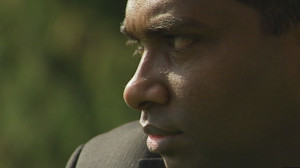 |
| See Video here |
At the end of the Sri Lankan civil war the government of Sri Lanka held a press conference, writes Callum Macrae. Five doctors who had been trapped in the war zones – and had told the world of the awful suffering of the trapped civilians – were paraded in front of the world’s media.
They attacked the hospital. They refused to send medicine. They refused to send food.Dr Varatharajah Thariajah
And what they said could not be clearer – everything they had said from within the war zone was wrong. The government had not shelled hospitals. Only a few civilians had died. All the allegations of war crimes by government forces were a lie.
Then they were taken back into custody.
It was an extraordinary coup for the government – and has been used to this day to counter allegations of war crimes. Only now has a very different story emerged.
Torment and suffering
Doctor Varatharajah Thariajah has a gentle smile and a quiet, self-effacing manner – but the stories he tells are so full of torment and human suffering they defy comprehension.
Varatharajah was one of a handful of government doctors who in 2009, chose to remain with scores of thousands of Tamil civilians trapped in the bloody killing fields of northern Sri Lanka, in the final months of that country’s 26 year long civil war.
Blood was not given at all. Most of the time during surgery we used the patient’s own blood. Autorun we call it.Dr Varatharajah Thariajah
The government had announced a series of what they called No Fire Zones. They encouraged over 300,000 desperate Tamil civilians to gather there – and then systematically shelled them.
For Varatharajah and the other doctors it was the beginning of a descent into hell. And the government, he says, deliberately made that worse by shelling the hospitals and denying them humanitarian supplies.
“They attacked the hospital. They refused to send medicine. They refused to send food,” he says.
The most serious shortages were of anaesthetics, antibiotics and blood – shortages which led to terrible and unnecessary suffering among the survivors.
We gave some pain injection, and we thought he would die within about one hour – but he took a long time to die.Dr Varatharajah Thariajah
“If a person needed 100mg of anaesthetics, we just gave them 25 or 30mg. We did most of the surgery with a minimum of anaesthesia.” says the doctor.
“Blood was not given at all. Most of the time during surgery we used the patient’s own blood. Autorun we call it.”
It was an extraordinary procedure, by which the doctors simply fed wounded patients’ own blood directly back into them.
But before long the desperate shortages of anaesthetics, antibiotics and blood forced the doctors to make even more brutal choices. Choices about who they could actually save with the minimal resources available – and who they couldn’t.
Unbearable decisions
The decisions were unbearably painful.
“I can remember one 60-year-old man came with two legs amputated very close to the hip. There was no time, no anaesthetic for surgery so we decided to allow him to die.
“We gave some pain injection, and we thought he would die within about one hour – but he took a long time to die. He crawled here and there, he moved all over the place.”
He said the president and Gotabaya, they are angry with you because you informed about the whole situation to the media.Dr Varatharajah Thariajah
Varatharajah is not a man to easily admit to his personal pain – but he does so now, with quiet understatement.
“The doctors and myself, we got severely affected on that day.”
But still the pressure got worse. As each new temporary hospital was shelled and abandoned, the decisions they had to make became more and more agonizing.
“One mother came – nearly nine months pregnant. She was wounded – pierced in her side.”

The price of freedom
Callum Macrae is a journalist and director of No Fire Zone. You can follow @Callum_Macrae on Twitter